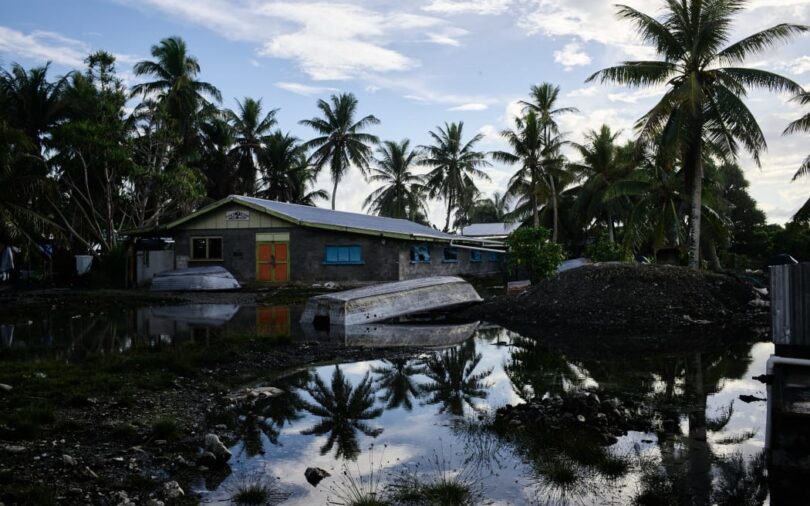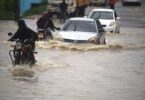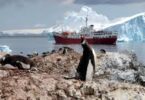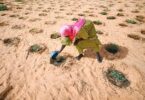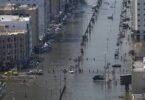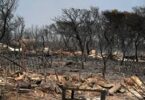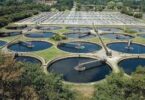SYDNEY (Reuters): Pacific island leaders will meet South Korea’s President Yoon Suk Yeol in Seoul on Monday, their third summit in a week with a large economy as the region seeks stronger action on climate change.
The Pacific islands span 40 million square kilometres of ocean between the United States and Asia, and Western allies have moved to boost their engagement amid concerns over China’s security ambitions for the strategic waters and economic leverage among the small island states.
New Zealand Foreign Affairs Nanaia Mahuta, who will depart for Korea on Sunday, said she was eager for the chance to discuss climate change, economic recovery from Covid-19, development cooperation, oceans and fisheries, and sea-level rise.
“Aotearoa New Zealand is joining with other Pacific Island Forum Leaders attending the Summit so that our voice can be heard, as we speak as one – as Pacific whanau – on our shared Pacific priorities.”
In Seoul, Mahuta will meet with her counterpart, Minister of Foreign Affairs Park Jin, and will deliver a national statement on ‘Preserving maritime zones in the face of climate change related sea-level rise’.
She will also host an event for Aotearoa New Zealand and Korean businesses to build connections and promote Aotearoa New Zealand’s brand in Korea, which is now Aotearoa New Zealand’s fifth largest trading partner.
In Busan, Mahuta will lay a wreath for the 34 Aotearoa New Zealand soldiers who fought during the Korea War and are buried at the United Nations Memorial and Cemetery.
Then she will soldiers serving at the Demilitarised Zone on the border between North and South Korea.
“This year marks 70 years since the signing of the Armistice in Korea that brought the fighting to an end. These moments of reflection encourage us all to focus on the need for peace. Building strong relationships between nations is a key to that,” Mahuta said.
Australian Defence Minister Richard Marles will also attend the first Korea-Pacific Islands Summit, his office said on Saturday, adding it would show cooperation between the 18 members of the Pacific Island Forum and South Korea for a secure region.
“Australia welcomes Korea’s interest in deepening ties with the Pacific, and looks forward to building on our foundation of shared values to promote our mutual interest in a prosperous and resilient Pacific,” he said in a statement.
South Korea is Australia’s third-largest export market, with trade dominated by exports of gas and coal. Marles will also hold a bilateral meeting with Korean minister of national defense Lee Jong-sup.
Australia and New Zealand are the largest members of the forum, a bloc of mostly small island countries at risk from rising sea levels caused by climate change and reliant on aid from development partners.
India’s prime minister Narendra Modi pledged more trade and development assistance in a summit with a dozen Pacific island leaders in Papua New Guinea (PNG) on Monday. The United States secretary of state Antony Blinken signed a defence agreement with PNG after a Pacific summit there on the same day.
The back-to-back meetings with major economies were a “massive boost for recognition of our priorities”, said Pacific Islands Forum secretary general Henry Puna in a statement.
The island states, which are seeking greater funding for climate change mitigation, have taken a collective approach to dealing with major powers.
“Forum Leaders see this as vital to addressing the challenges facing the Blue Planet, to planning and owning our development agenda, and to deepened climate resilience,” Puna said.
In Seoul, climate change, investment and fisheries are expected to feature in talks.
The Pacific islands has the world’s largest tuna fishery, where South Korea’s long distance fleet has been fishing since 1958, catching 255,226 tonnes in 2021 under licence schemes controlled by the forum members.
France, which has Pacific overseas territories, will also join the Seoul meeting.

